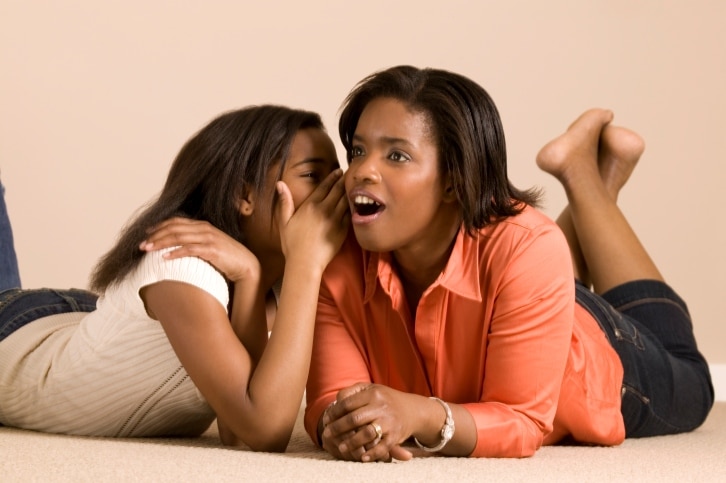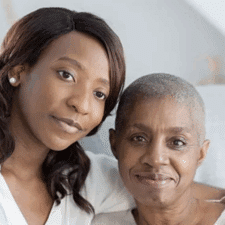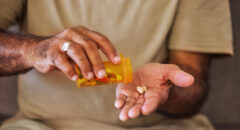
“Ewww! What’s that?!,” a seventh grade girl remarked as she picked up a hygiene product out of her gift bag at the conclusion of an Assist Her, Inc. workshop. The other young ladies quickly responded with street vernacular on the purpose of the product and how to use it. Some of their talk was based on personal experiences and some from mere hearsay. When I corrected them about the appropriate terms to represent a girl’s reproductive organs, all of the girls began to moan and groan loudly about the conversation being “gross,” “nasty” and inappropriate to discuss.
READ: Top 10 Myths About Sexual Health For Teens
While reflecting on this situation, a few things came to mind. The first is that there are entirely too many young girls who are not knowledgeable about their bodies from a sexual health and responsibility perspective. Also, it is painfully obvious that conversations are not occurring between girls and their female caretakers. A female caretaker is not always the biological mother, but could be an older sister, aunt, grandmother, etc. This may be the first woman charged with the duty of ensuring that an emerging young woman knows how to properly care for her body, is prepped for the introduction of a menses and knows the implication of her period on future sexual practices.
READ: How To Talk To Your Child About Sex
March 10 is National Women and Girls HIV/AIDS Awareness Day and according to the Center for Disease Control and Prevention, 1.1 million people in the United States are living with HIV. Of those people, one in four (25%) is a woman 13 or older. Approximately 27,000 women have HIV but do not know they have the disease. If current trends continue, 1 in 32 black women will be infected with HIV in their lifetimes.
Take a stand against these statistics and engage in the following activities:
- Start having conversations with girls about their body parts as young as two years old.
- Discuss the arrival of a menstrual cycle and what it represents i.e., the ability to get pregnant.
- Encourage sexually active girls to have annual gynecological exams.
- Promote abstinence and/or safer sex practices i.e., condoms.
- Discuss what sexually transmitted infections (STIs) are and how they’re treated.
READ: Black Teens & HIV
It’s a fact that every woman was a girl first. Some of us had guidance, others were forced to learn by trial and error. A lot of women have made poor choices whether through naivety or a simple “fall from grace,” to make a decision in the heat of the moment that could have been deadly. Girls and women have found themselves pregnant, infected with STIs, or living with HIV/AIDS because they were ignorant to the facts of life.
READ: Why Sex Education Also Belongs In The Home
Don’t forget to ask YOURSELF:
1. What messages and information about sex were given to me?
2. What did my mother tell me about sex?
3. What did my father tell me about sex?
4. What were some of the myths or misunderstandings I had about sex?
5. What do I wish I had known then that I know now?
6. Did those misunderstandings ever put me at risk?
This is where the conversation begins. Start talking…
Visit the BlackDoctor.org STDs center for more.
 Samantha Coleman, M.A., LPC, is an award-winning visionary leader, educator and counselor who has made it her life’s work to provide young women the tools and resources they need in order to be fully empowered and game changers of the new millennium. As the founder and Executive Director of Assist Her, Inc., an Illinois non-profit organization that provides prevention, literacy, and mentoring programs to girls ages 10-18, Coleman has serviced over 2,000 females in the Chicagoland area since 2005. Follow her on Twitter @SC_WTBillboard.
Samantha Coleman, M.A., LPC, is an award-winning visionary leader, educator and counselor who has made it her life’s work to provide young women the tools and resources they need in order to be fully empowered and game changers of the new millennium. As the founder and Executive Director of Assist Her, Inc., an Illinois non-profit organization that provides prevention, literacy, and mentoring programs to girls ages 10-18, Coleman has serviced over 2,000 females in the Chicagoland area since 2005. Follow her on Twitter @SC_WTBillboard.








